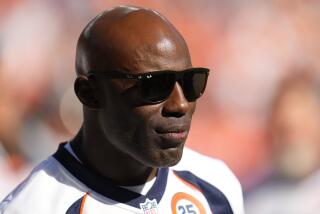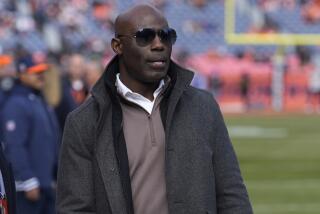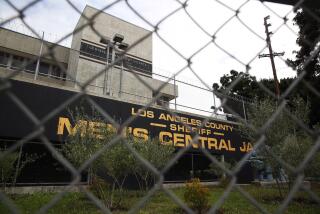It’s no loss for privacy when elevator videos bust the badly behaved
The next time you’re tempted to viciously kick a puppy in an elevator, or knock your fiancee unconscious, or beat up your sister’s husband, you might want to rethink your expectations of privacy.
There is no “private” anymore, especially not in elevators. And that is a hell of a good thing, because elevators seem to lull people with violent impulses into thinking they are alone.
In February, Baltimore Ravens running back Ray Rice was charged with assault after he was caught on a video camera dragging his unconscious fiancee out of an elevator at an Atlantic City casino. (That video was taken by a camera stationed outside the elevator, so we didn’t get a chance to see an actual blow. Had we seen video from inside the elevator, NFL Commissioner Roger Goodell might not have blundered into giving Rice a paltry two-week suspension, which caused the public backlash that led to major changes last week in the NFL’s policy on spousal abuse.)
In May, the image of family harmony so carefully cultivated by the mega-corporation known as Beyonce and Jay Z was disrupted after the leak of a three-and-a-half minute elevator video at the Standard Hotel in New York City that showed Beyonce’s sister Solange Knowles, punching and kicking her famous brother-in-law while a bodyguard tried to restrain her. Did the world need to see that? Of course not. But physical aggression is wrong, and if Solange Knowles is chastened by the world seeing her loss of control, so be it.
Just this week, in what can only described as justice as sweet as it was swift, the CEO of a Connecticut-based catering company resigned after a leaked elevator video showed him abusing a Doberman Pinscher puppy in a Vancouver elevator. The San Diego U-T reported that 180,000 people signed a petition demanding the ouster of Desmond Hague as CEO of Centerplate, which provides food to large sports venues like San Diego’s Qualcomm Stadium.
After a bunch of lame public relations dodges, as my colleague Michael Hiltzik reported, Centerplate announced Hogue’s departure on Monday. It was hard not to cheer the decision. Normal people do not abuse helpless creatures.
No one knows exactly how many of the estimated 900,000 elevators in the United States have security cameras. (I checked with the National Elevator Industries Assn. and the Building Owners and Managers Assn.) But it’s pretty clear there’s no such thing as privacy in even the smallest public spaces anymore.
“You can’t assume that you are not being watched or that there is not a security camera around catching everything you do,” Tony Banuelos of A-1 Security Systems told San Francisco radio host Gil Gross, who wanted to know how the Solange Knowles video leaked. Banuelos said it looked to him like a fairly low-tech violation: someone apparently held a cellphone camera up to a monitor that played the footage.
But he also said that so many people have access to security footage -- not just hotel employees, but employees of the installation companies, as well as the equipment manufacturers -– that tracking down the responsible parties is difficult. (After the Solange Knowles incident, The Standard Hotel told news organizations that it had fired the staffer responsible for leaking the video to TMZ for an unknown sum.)
As for the privacy rights of individuals, elevator surveillance cameras are perfectly legal, as long as they serve a legitimate business purpose. However, you won’t ever hear the audio from those disturbing tapes, because recording someone’s voice without consent violates federal and most state wiretapping laws.
I’m not too crazy about red-light traffic cameras, or the continuous mining of private data by social media websites like Facebook.
But elevator surveillance cameras? They’re one aspect of our over-monitored lives that have shown their value, time and again.
Twitter: @robinabcarian
More to Read
Sign up for Essential California
The most important California stories and recommendations in your inbox every morning.
You may occasionally receive promotional content from the Los Angeles Times.











